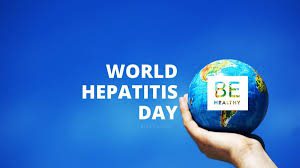World Hepatitis Day: Expert urges more public awareness
A Consultant Gastroenterologist, Dr Mbang Kooffreh-Ada, has called for more public awareness on hepatitis disease to reduce morbidity and mortality among the populace.
She made the call in commemoration of the World Hepatitis Day, celebrated on July 28 with the theme: “Bringing Hepatitis Care Closer to You.”
The day sought to highlight the need to bring hepatitis care closer to primary health care facilities and communities, and to ensure better access to treatment and care.
Hepatitis is an inflammation of the liver, caused by a variety of infectious viruses and noninfectious agents leading to a range of health problems, some of which can be fatal.
According to the World Health Organisation (WHO), there are five main strains of the hepatitis virus, referred to as types A, B, C, D and E.
While they all cause liver disease, they differ in modes of transmission, severity of the illness, geographical distribution and prevention methods.
Kooffreh-Ada said that hepatitis B and C led to chronic disease in many people and together were the most common cause of liver cirrhosis, liver cancer and viral hepatitis-related deaths.
She, however, said that a lot of people were not aware of their hepatitis status, noting that the disease remained a ‘silent killer’, mostly undetected due to an absence of symptoms until treatment was late.
The gastroenterologist stressed that public awareness on hepatitis was crucial to encourage all adults to screen for hepatitis B and C, and children to get vaccinated against hepatitis B.
“Liver cancer that may arise from hepatitis B can be prevented through vaccination, but it’s so sad that uptake of the vaccine is suboptimal in the country.
“The cost of prevention is cheaper than treatment which can run up to millions if it’s liver cancer.
“Knowing one’s status assists to identify those that are hepatitis B positive, so that we can monitor them and begin prompt treatment to ensure that deleterious complications don’t impact on them,” she said.
Kooffreh-Ada appealed to the government to partner with relevant stakeholders on incorporating hepatitis education and screening into HIV/AIDS, tuberculosis and Malaria programmes at the community levels.
“We already have a structure at primary healthcare level but do not have enough human capital engagement or development.
“We need the community health extension workers to carry out contact tracing at communities, and the health workers at PHCs ready to start preliminary care for the identified persons.
“They should also streamline linkages for referral to those who need further specialist care at secondary or tertiary hospitals,” she said.
The gastroenterologist advised the public against unsafe sexual behaviour, unscreened blood transfusion and harmful traditional practices to reduce their exposure to hepatitis infection.
She stressed that effective coordination, awareness and improving vaccination would assist the country meet its commitment to eliminate viral hepatitis by 2030.
Data from the WHO Africa region showed that hepatitis disease was responsible for the deaths of about 125, 000 people annually on the continent, in spite the availability of treatment.
It said that more than 90 million people are living with hepatitis in Africa, accounting for 26 per cent of the global total.
Also, the Minister of Health, Dr Osagie Ehanire, said that more than 20 million Nigerians are living with either hepatitis B or C, noting that the disease constituted a public health challenge in the country.
#World Hepatitis Day: Expert urges more public awareness#




























































































